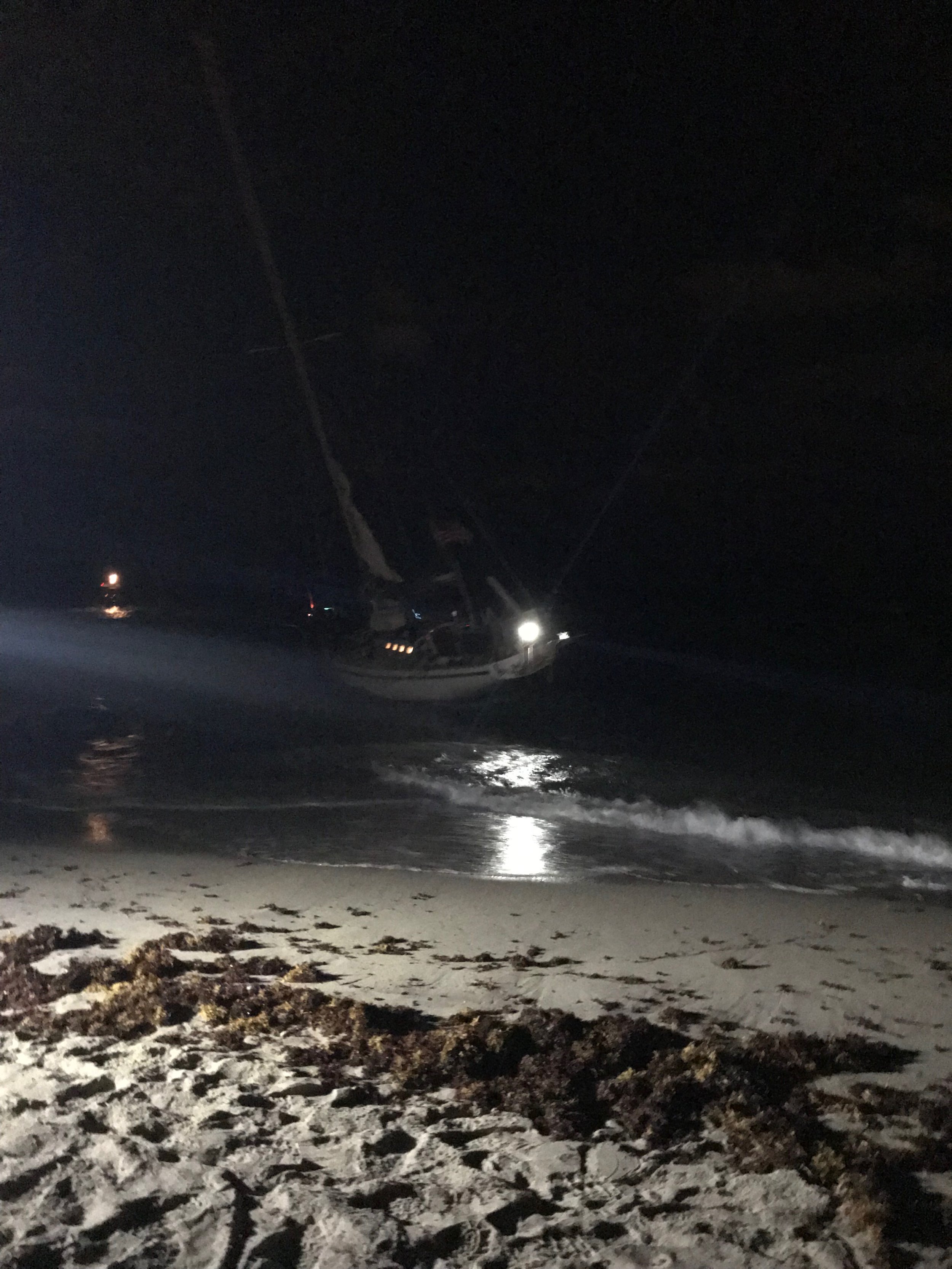In an older post, I mentioned a method for "sleep sailing" where you sleep for about 20-30 minutes, and then look around. You make sure everything is ok and that there are no boats on the horizon and then go back to sleep for another 20-30 minutes.
That is a bad idea and I no longer recommend it!
Keeping watch is just that, someone sitting at the helm watching. They are not sleeping, they are not napping, they are watching!
We were sailing along the Straits of Florida when I was doing my "sleep sailing" and the result was catastrophic! Due to the proximity of the west wall of the Gulf Stream, we were very close to shore (0.8 nautical miles) and all had been fine. We had left Fort Pierce about two days ago and we were sailing to Miami. The route was straight and the winds were constant; the Monitor Windvane had been steering us on our course like a champion and I had not needed to make a single adjustment since 5pm.
At starting at 8pm, I started my "sleep sailing" since getting up every 20-30 minutes doesn't produce a very restful nights sleep, I feel that I need to do it for a longer time to stay mentally rested. So I began at 8pm and was waking up 2 to 3 times per hour. Around 10pm, it was getting a little bit cold out in the cockpit, so I had setup my sea berth with the lee cloth inside. I continued to check on the helm every 20 to 30 minutes, just as I was when I was in the cockpit.
At around 11pm, we felt a lunge and a gradual slowing of the boat. Mind you we were only sailing along at 2-3 knots, so we weren't really moving quickly. Panic rushed through my mind as I thought about the damage I might have caused someone else. I quickly began to wonder how we came to collide since I hadn't seen any navigation lights on the horizon the entire night!
When I crawled out of the companion way, I heard waves breaking and saw that we were on a beach.
Looking back at our tracking, it appears that right after I did my last look around, one of the control lines to the windvane fell off the wheel. We quickly turned 90 degrees to starboard, without jibing, and sailed straight for shore. In a few minutes, we were on the beach and the waves were driving us up the sand.
Thankfully, this beach was only soft sand with no rocks or corals, and we were able to be towed off by SeaTow in a few hours.
This horrible experience could have been avoided in so many ways. Hindsight reveals all the ways I could have prevented this catastrophe, but the simplest method of all is to stand watch!
When you are sailing, if you get tired you should stop. Do not sail while you are sleeping, and do not take naps at the helm. If you are near shore, enter an inlet and anchor in a safe harbor, or anchor near shore if it is calm enough. If you are far offshore, heave to and stop the boat.
This was a really tough lesson to learn and we certainly learned it the hard way! Please learn from my mistake and never have this happen to you!



